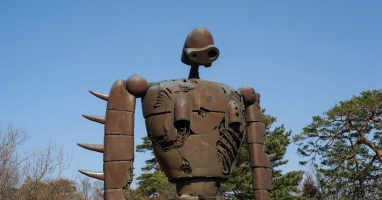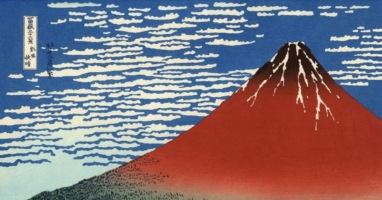I wrote this article in Japanese and translated it into English using ChatGPT. I also used ChatGPT to create the English article title. I did my best to correct any translation mistakes, but please let me know if you find any errors. By the way, I did not use ChatGPT when writing the Japanese article. The entire article was written from scratch by me, Saikawa Goto.
Introduction
Movies and books covered in this article

Three takeaways from this article
- In Japan, “apology” often means “don’t pursue this anymore.”
- What is really important is to uncover the truth and take recurrence preventions, but there is a tendency for people to think “it’s okay because they apologized”.
- It’s important to withhold judgment of good and evil and not see things as all or nothing.
Self-introduction article


Published Kindle books(Free on Kindle Unlimited)
“The genius Einstein: An easy-to-understand book about interesting science advances that is not too simple based on his life and discoveries: Theory of Relativity, Cosmology and Quantum Theory”
“Why is “lack of imagination” called “communication skills”?: Japanese-specific”negative” communication”
The quotes used in this article are based on notes taken at the movie theater from movies in Japanese and are not direct quotes from the foreign language original movies, even if they exist.
In Japan, “Good and Evil” are Determined by the “National Mood.” It’s a Very Frightening World

Do You Feel that There is a Meaning in “Apologizing”?
I have seen a TV program before where people involved in foreign media discussed the strange points of the Japanese media. All of the “questions” raised there were strange also to me as a Japanese person, but the one that I sympathized with the most was about “apologizing”.


An American journalist who used to work as a correspondent in Japan appeared on a TV program and talked about the line between “apology” in other countries. The program discussed the criteria for politicians, top executives, celebrities, and others to “apologize publicly” or not. The journalist said, “It depends on who the victim is.”
For example, if a German car company commits fraud, “the environment” or “an unspecified number of people” are the victims, so it is natural to decide that a “public apology is necessary.” In other words, if the impact is only on a “specific individual,” then “a public apology is not necessary.”
However, in Japan, even in cases of affair, a “public apology” is implicitly demanded. Since the victim is a “specific individual,” it was pointed out by other foreign journalists who appeared on the program that it is sufficient to apologize to that individual rather than to the public.

I agree with this opinion. There are probably many people who feel the same way. Every time I see a press conference about an affair apology on TV, I can’t help but feel “what’s the point?”
However, in Japan, where “it is natural to publicly apologize even for an affair,” the majority of people probably want it.
In that program, some convincing points were also made. In other countries, “apology” means “to be also pursued in the future.” But in Japan, it was pointed out that it means “don’t pursue it anymore.” Then in this case, is it the person who apologizes that wants an apology, not the public?

However, even if the parties involved wished to apologize to society, it cannot be established if society does not desire it. Therefore, one can only assume that society also wants an apology.
It All Comes Down to the “National Mood” Determining Good and Evil
Let’s think a little more about the meaning of “apology”.

In other countries, “apology” means that the person will continue to be pursued for their wrongdoing in the future, as mentioned earlier. This can be seen as a process to confirm that someone is “bad” because of their apology.

However, in Japan, atmosphere that “it’s okay because they apologized” is easy to create. Even though apologies can sometimes add fuel to the fire and cause an uproar, there is a tendency to include the “fact that I apologized” in the judgment of whether something is good or bad somehow. In other words, in the sense of deciding, “Sure, I’m sorry, but since I apologized, that’s enough, right,” it may be possible to see as the process of “confirming that someone is ‘good'” through the act of apology.
I find this kind of thinking very scary. In Japan, the judgment of “good” and “bad” is largely determined by the “national mood” of whether or not people accept the apology.

I don’t care about the story of the affair, but I believe that this Japanese atmosphere that “the very apology is the process for being determined that is ‘good'” also appears in political and corporate issues.
Ideally, the cause should be investigated, the responsibility clearly determined, and measures taken to prevent the same thing from happening again before it can be judged as “good.” I think the stance of other countries to “continue to be pursued in the future” is precisely because of this background.

However, in Japan, instead of discussing how to avoid making the same mistake again, the first question asked is whether or not an apology has been made.
In other words, because the “national mood” determines “right and wrong,” leaving the problem unimproved, and the possibility remains that the same thing will happen again.
Of course, Japanese people are generally serious and there should be many who try to improve the situation regardless of apologies or the national mood. I feel that it is this national character that keeps society going, even if the meaning of “apology” is strange. However, not everyone is sincere. In principle, it can be said that the system can be pushed through with anything by becoming defiant, “You’ll be satisfied if I apologize, right?”

I feel that the society where people have little desire to seek the truth is very frightening.

I experienced the Aum Shinrikyo incident in real time. It may not be unrelated that I also lived quite close to Kamikuishiki Village, one of Aum Shinrikyo’s bases at the time, I still remember the unusualness of the news coverage at that time. The case had been covered as top news by the media every day. I have only felt the same scale of coverage since then, only with the 9/11 attacks or the Great East Japan Earthquake.

However, in the end, the details of the incident remain unknown. Aum Shinrikyo planned and carried out such a massive event, but the specifics of who was involved and what roles they played were never revealed. As a result, Asahara Shoko and his top members were sentenced to death without a clear understanding of the truth.
Of course, since Asahara Shoko did not speak, it can be said that it was impossible to uncover the truth. However, Asahara Shoko’s trial progressed in an “abnormal form.” It was not a trial that seemed to be seeking the “investigation of the truth.” Furthermore, this fact was not reported in the media, so we have no idea that we were in such a state. It would be that society’s “indifference” in the form of “Put the investigation of the truth on the back burner, Make them apologize first, then the death penalty” is behind this, and it may be fair to say that this is why the truth has not been discovered.

The idea that “an apology is enough” will inevitably weaken the awareness for seeking the truth. By losing this awareness in our daily lives, the desire for uncovering the truth is supposed to disappear, regardless of whether an apology is made or not.
I find it “scary” that in a society where the “national mood” determines what is right or wrong.
Ideally, like in other countries, an apology should be a declaration of determination to seek the truth. But in Japan, it only functions as a message that says “we may not investigate the truth, but please forgive us”. And so, the society continues to progress in this state.
I feel that this kind of society is very unpleasant.

How does the “National Mood” Judge the “Family” in “Shoplifters”?
In “Shoplifters,” a certain “family” appears. Let’s not touch on the secret of this “family”. It’s a well-known work, so even those who haven’t watched it might know the basic setting, but I’ll keep it secret in this article.

For now, let’s just say that “this ‘family’ is engaged in activities that violate the law.”

Now, I want to make it clear that I believe anyone who breaks the law, regardless of their reasons, should be punished according to the law. This has nothing to do with morality. For example, I would determine someone who breaks the law to help others as “good,” but also I still believe they should be punished. Otherwise, a “rule of law” society cannot exist. This is my basic premise.
Therefore, this “family” should be punished.

However, at the same time, I also think it’s “good”. I want to believe so. They violate the law reluctantly or in order to help someone. They are certainly breaking the law, but by doing so, they are saving someone for sure.
Society is not kind to the weak. And there are people who are forced to make tough decisions every day just to survive in such an unkind society.

Now, how will the behavior of this “family” be judged by the “national mood”? This is one of the highlights of the movie.
On the other hand, there is a certain “couple” that appears in this movie. I will avoid providing detailed descriptions about them, but from the audience’s perspective, they are nothing but “evil”. However, the fact is not known to society, and conversely, society thinks of this “couple” as “victims”.

The “evil” of this “couple” is probably not something that violates any law. However, their behavior is only selfish and not something that would save anyone. It’s only speculation since it’s not depicted in detail, but it’s probably not even a “decision they have no choice but to make in order to survive.”
I think that many people who watch this movie would probably judge the “couple” who is not breaking the law as more “evil” than the “family” who is breaking the law.

However, if we only knew the situation surrounding the “family” and “couple” through news reports, our perspective would surely change. There is no doubt that the “family” would be judged as more “evil” than the “couple”. Of course, because they have broken the law, the “family” must be punished. However, if we were to decide “good and evil”, it is obvious that the “couple” would be the ones who are “evil”.
The characters cannot obtain the same information as the audience. Therefore, I know that is inevitable, but I still resented the reality that “national mood” judges the “family”.

We Should have the Courage to Put on Hold Good and Evil Judgments
It may be a biased impression, but I feel that many people in the world seem to want to clearly decide things as either “0 or 100,” “black or white,” etc. They also seem to think that such distinctions can be easily made in most things in the world. For example, when one sees someone asking, “Can you say it’s 100% safe?” about the safety of something, I’m surprised. There is no such thing as a state of “100% safety,” so I feel like wondering what they are talking about.


What makes me feel scared is the thinking of “if it’s not 100, then it’s 0” or “if it’s not white, then it’s black”. Why do people think there is no middle ground? Even if it’s not 100, it could be 40 or 90. But I’m surprised that some people receive like “not 100” means it’s the same as “0”.
The same goes for judging good and evil.

This movie thoroughly blurs the line between good and evil. People who can only judge things as either “good” or “evil” will struggle with the way this film portrays these concepts.
The movie suggests that there is a possibility that even things that are clearly judged as “evil” in the news may also have some “good” aspects to them. This perspective could lead to a change in how we make judgments about good and evil.

I think the most important thing is to have “the courage to put on hold good and evil judgments”.
Usually, we reflexively judge things as either good or evil. We often only use the most noticeable and easily understandable information to determine whether something is good or bad.
However, “Shoplifters” shows the possibility that things that only appear to be “evil” could actually be “good”. That’s why I think we need to have the “courage to suspend judgment”.

No matter what kinds of events, there is a reason or logic behind why it happened. And many of those reasons are not supposed to be easily understood. By “suspending judgment,” many people may be able to visualize those hard-to-see reasons and logic, and it may reduce the number of people who are forced to break the law.

This is the kind of society I hope for.

Content Introduction
Osamu, the “father”, and Shota, the “son”, always work together to shoplift. One day, on their way home after finishing their usual “job”, they find a shivering little girl in the hallway of an apartment building. They ask her if she wants a croquette and take her back to their home. Nobuyo, the “mother”, tells them to return the girl after she eats. They try to send a 5-year-old girl named Yuri, back to her apartment, but from a room that seemed to be her home, they could hear them having a big fight, saying, “I didn’t give birth because I wanted to give birth.”

They took Yuri home with them.
Hatsue, “their grandmother,” lives on a pension, and her “granddaughter” Aki, who admires her, works at a sex establishment. Their father, Osamu, works as a day laborer at a construction site, and Nobuyo makes a living by ironing at a factory. Shota, who can’t go to school, and Yuri, who has been living with them since that day, spend most of their days playing outside.

They had no doubt that life would continue to be the same as before. However, everything changed when a news story appeared on TV. It reported that Yuri was missing. Even when they asked Yuri if she wanted to go home, she didn’t respond. So, they changed Yuri’s name to “Rin” and cut her hair short so she wouldn’t be recognized.
That’s how they were supposed to continue their peaceful lives……

Impression
I like Koreeda Hirokazu’s works. Although I haven’t seen all of them, I appreciate the atmosphere of capturing someone’s everyday life with a camera without a specific story, and the actors’ performances that are hard to tell if they are acting or not.


“Shoplifters” doesn’t have much of a particular story other than the opening scene where Yuri is “kidnapped.” However, it’s a film that captivates us all the way through. The reason for that is the strange relationship between the characters who are a family but not a family. As the story unfolds, the nature of their relationship becomes gradually clear. However, the sense of discomfort slowly seeps out even from the stage where the situation cannot be grasped, and I think we are attracted to the mismatch between the “unidentifiable atmosphere” and the “overwhelming sense of everyday life.

I don’t have a strong attachment to the idea of “family” and I really don’t care if someone is related to me by blood or not. I don’t even have the usual “fantasy about family” that most people seem to have. So, I don’t feel any discomfort with the “family” portrayed in this movie. In fact, I think it would be great if relationships where people can be together without being related by blood became more common.

Of course, as I mentioned at the beginning, they are clearly breaking the law and cannot escape punishment. However, that is the only way they can live. Moreover, it is questionable to condemn them unilaterally as “bad because they are breaking the law” when we are creating a society where living like that is the only option.
If you watch this movie and still judge this “family” as “evil,” then you must have lived a happy life. I would be happy if you could think a little about the fact that it is a society where some people can only live a difficult and harsh life while savoring their happiness.

Conclusion
I felt that this story was an ambiguous, complex, and gentle tale that presents various difficult questions such as how to perceive the world, judge right from wrong, and live in a society where not everyone can be happy.

Published Kindle books(Free on Kindle Unlimited)
“The genius Einstein: An easy-to-understand book about interesting science advances that is not too simple based on his life and discoveries: Theory of Relativity, Cosmology and Quantum Theory”
“Why is “lack of imagination” called “communication skills”?: Japanese-specific”negative” communication”







コメント